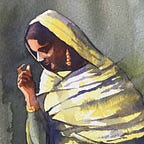Boring, Essential Research
Making your stories richer
One of my favorite authors of espionage novels is Helen MacInnes. Most readers today will find that name unfamiliar, but about a year and a half ago, Titan Books announced that they would be reprinting and digitizing her works. I’m hoping she’ll be as popular this time round.
Her last book was published (a year before her death) in 1984—Ride a Pale Horse. Her first, in 1941 (Above Suspicion). In forty-five years, she wrote twenty-one spy novels, a prolific rate considering the exquisite detail in each of her books. Her books are long—averaging 300 pages in standard small-print paperbacks. They are set around the world, from sultry Spain, to icy Poland, to the majestic Wyoming mountains (though that particular book, Rest and Be Thankful, was not among her espionage works), and each book takes you so deep into its location that you feel as though you’re actually there.
If you ask me what Delphi and Athens looked like in the sixties, I could easily direct you to the best tavern for political debate, or what the Parthenon looks like against a golden sunset. I could describe the crisp summer air of Malaga, or the narrow streets of Venice that, even in the sixties, was drenched in the stench of stagnant canal water.
She travelled extensively before she started writing, giving her a solid foundation for the exotic backgrounds to her stories. It helped, I am sure, that her husband was a bona fide spy (MI6), because her complex plots were layered with subtleties and mundane details that seemed inconsequential at first. It was often the smallest details, the little flash of memory—a laughing woman’s outstretched arm, a book someone was reading, a word in a newspaper article—that would turn the tide in the plot.
Her heroes weren’t dramatically exceptional like James Bond or Jason Bourne or Jack Ryan. They were often just ordinary citizens caught up in a desperate game, and they each bought their own particular talents into the fray.
What set her apart from her peers was the depth of her research. Her stories were vivid and authentic. So authentic, in fact, that her third novel, Assignment in Brittany (published in 1942), was required reading for Allied spies working with the French resistance against the Nazis (Wikipedia). This wasn’t something I knew until I looked her up (doing my own bit of research) for this article, but I am not surprised. I learned a great deal of history from her books, histories of the West, admittedly, but history nonetheless. She used existing and current events as backdrops to her stories. She researched political and ideological concepts, using them to strengthen her characters’ dialogue. Accordingly, when her nihilist propounded his theory of the new world order in Decision at Delphi, he did so with passion and accuracy. When her journalist heroine explained the subtle differences between disinformation and misinformation, she was authoritative and confident, not fumbling and pretentious.
And the crux of the matter comes down to this: if you want to create a character that your readers connect with, if you want to give your characters words that resonate in the minds of your readers, you have to know not just what they look like or what they do, but how they think. And you can’t do that without research.
Helen MacInnes died in 1985. She never had the power of the Internet at her fingertips; she did her research the old-fashioned way. With all the amenities of unlimited sources of knowledge available to today’s writers, it isn’t too much to ask that if you don’t know something, look it up.
